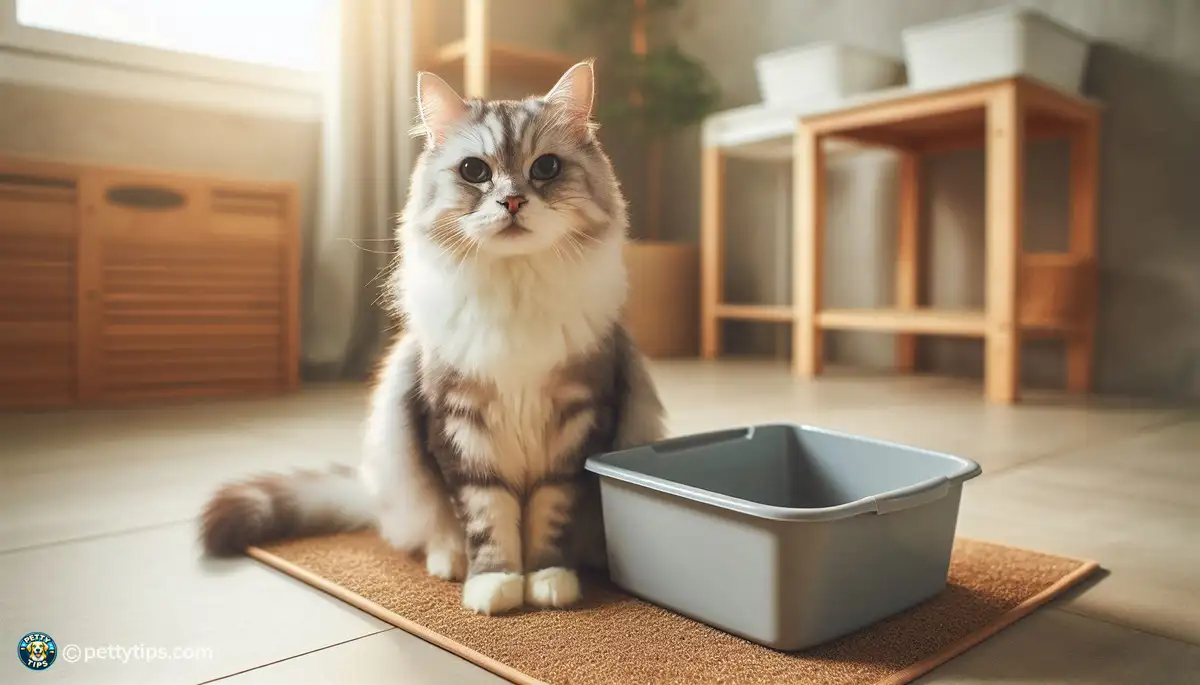
Understanding the Impact of Environment on Cat Socialization
Isabella Boudreault - Sep 09, 2024 - 7 min read


As our beloved feline companions grow older, they may encounter various health issues that affect their behavior, including their litter box habits. Cats are known for their fastidious nature, but age-related ailments such as arthritis, cognitive decline, and urinary tract problems can make it difficult for them to use the litter box consistently. Arthritis, for instance, can cause discomfort or pain when navigating to the litter box, while cognitive decline may lead to forgetfulness or confusion about its location. Understanding these challenges is crucial for effectively addressing litter box issues in senior cats.
As responsible pet parents, it's essential to pay close attention to any changes in our senior cats' behavior, including their litter box habits. Keep an eye out for signs such as urinating or defecating outside the litter box, spending excessive time in the litter box without producing any waste, or vocalizing discomfort while using it. These behavioral changes could indicate underlying health issues or discomfort that need to be addressed promptly.
When it comes to senior cats, the right litter box can make a significant difference in encouraging consistent use. Opt for a litter box with low sides to make it easily accessible for cats with mobility issues or arthritis. Additionally, consider placing multiple litter boxes in different areas of the house to ensure that your senior cat always has access to one, especially if they have difficulty moving around.
The type of litter you choose can also influence your senior cat's litter box preferences. Some older cats may prefer softer litter materials, such as fine-grain clumping litter or recycled paper litter, which are gentler on their sensitive paws. Experiment with different litter types to find the one that your senior cat finds most comfortable and appealing.
Maintaining a clean litter box is essential for encouraging senior cats to use it consistently. Scoop the litter box at least once a day to remove waste promptly, and change the litter entirely every few days to prevent odor buildup. Senior cats may be more sensitive to odors, so keeping the litter box clean and fresh is crucial for promoting regular use.
While it may be tempting to relocate the litter box to a more convenient spot, especially in households with multiple floors or limited space, sudden changes can confuse senior cats and disrupt their litter box routine. Choose a quiet, easily accessible location for the litter box and avoid moving it unless absolutely necessary. Familiarity with the litter box's location can help senior cats feel more comfortable and confident using it.
If your senior cat is experiencing litter box issues despite your best efforts, it's essential to consult with a veterinarian to rule out any underlying medical conditions. Conditions such as urinary tract infections, kidney disease, or arthritis can impact a cat's ability to use the litter box consistently. A thorough physical examination and diagnostic tests can help identify and address any health issues contributing to your cat's litter box problems.
Once a medical condition has been diagnosed, follow your veterinarian's recommendations for managing and treating the issue. This may include medication, dietary changes, or environmental modifications to accommodate your senior cat's needs. By addressing underlying health concerns, you can help improve your cat's overall well-being and encourage them to use the litter box consistently.
Senior cats may benefit from positive reinforcement and encouragement when it comes to using the litter box. Offer praise or treats when your cat uses the litter box correctly to reinforce good behavior. Additionally, consider using a pheromone spray or diffuser designed to reduce stress and anxiety, which can help senior cats feel more relaxed and confident in their litter box environment.
Stressful situations, such as changes in routine, new pets or household members, or loud noises, can contribute to litter box issues in senior cats. Take steps to minimize stressors in your cat's environment and provide them with a safe, secure space where they can relax and feel comfortable using the litter box. Creating a calm and predictable environment can help alleviate anxiety and promote consistent litter box use.
Encouraging senior cats to use the litter box consistently requires patience, understanding, and a proactive approach to addressing their unique needs. By recognizing the challenges of aging, creating an ideal litter box environment, maintaining a clean litter box routine, addressing medical concerns, and providing behavioral support, pet parents can help their senior feline companions maintain good litter box habits and enjoy a high quality of life in their golden years. Remember to consult with your veterinarian if you have any concerns about your senior cat's litter box behavior, as they can provide valuable guidance and support tailored to your cat's individual needs. With love, patience, and proper care, you can help your senior cat navigate their golden years with confidence and comfort.